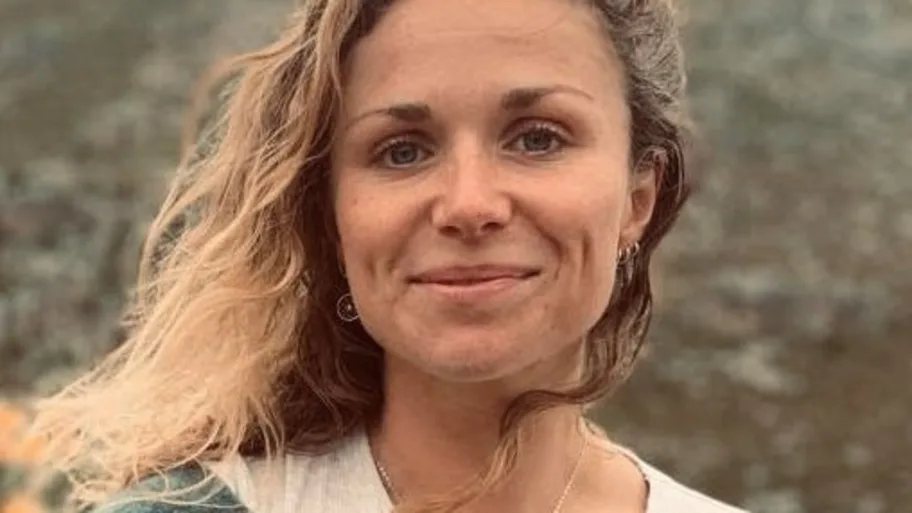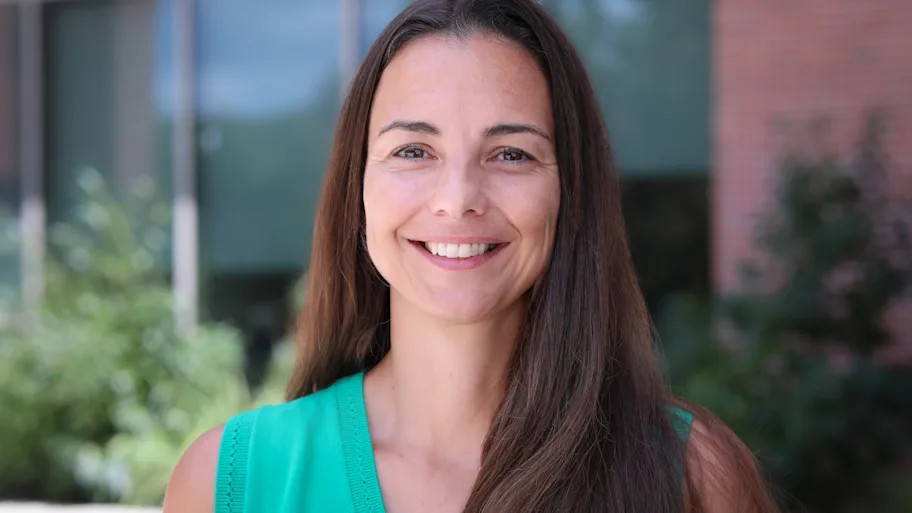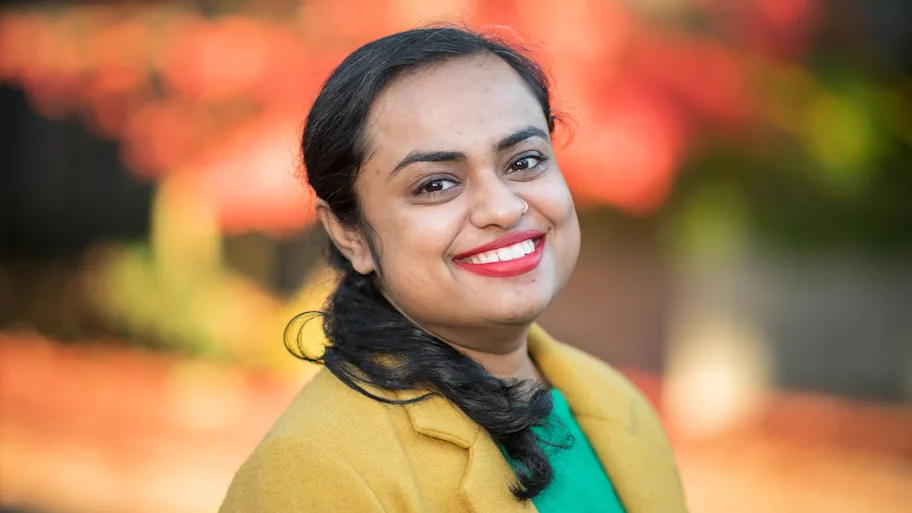
- Science news
- Frontiers news
- Rasha Dabash - Climate action needs women and girls
Rasha Dabash - Climate action needs women and girls
Author: Katharina Stock
Rasha Dabash is a multilingual researcher, technical advisor, and Sexual and Reproductive Health and Rights (SRHR) advocate with over 25 years of global experience in effectively generating and using evidence to drive innovative changes in policies and practice. Currently, she works as an independent technical consultant to international NGOs and feminist movements/projects. Previously, she held leadership and research roles in reproductive and maternal health at Ipas, Gynuity Health Projects, EngenderHealth, and the Population Council.
Prompted by this year’s World Population Day theme which aims to “To Leave No One Behind,” Rasha and I discuss what inspired her to pursue Sexual and Reproductive Health and Rights research and why its intersection with climate change is so pivotal to focus on right now to protect the life and health of the world’s population.
Rasha is currently leading a Research Topic titled “Climate, Gender, and Sexual and Reproductive Health - Intersectional Approaches and Evidence” in Frontiers in Global Women’s Health.

Have you ever wondered how you would manage your period in the case of a natural disaster? This is what Suchitra Jana was left to figure out for herself when her family found refuge in a government shelter after super cyclone Amphan hit India’s coast in 2020. Jana’s story was among the accounts highlighted in an article published last year by German news outlet Deutsche Welle. In the article, Jana recalls that for the 800 people taking refuge in the camp, only four toilets, shared by both men and women, were available, leading to hour-long queues and understandably unsanitary conditions. With no access to menstrual products, clean water, or places to wash in private, Jana used pieces of cloth to manage her cycle. Jana and her family spent only twenty days in the shelter, but the conditions left her with a painful vaginal infection that lasted months.
Jana’s experience illustrates what is often overlooked: the varied ways women and girls’ lives are affected by increasingly common environmental disasters, menstruation being only one of many facets exposing the gendered nature of the effects of climate change.
“Climate change is a threat multiplier for women and girls,” Rasha Dabash explains. “The many existing vulnerabilities and threats to their sexual and reproductive health and rights are amplified because of it.” Rasha is a researcher and advocate with over 25 years of experience working in the Sexual and Reproductive Health and Rights (SRHR) space. Her expertise covers several SRHR domains, including maternal health, family planning and contraception, HIV/AIDS, and safe abortion care. Over the past few years, Rasha’s interests have expanded to focus on leveraging her research and policy background to push for more intersectional dialogue and action at the nexus of climate, gender, and SRHR. Her goal is to enable more collective and nuanced research to drive action that addresses experiences of women like Suchitra Jana, who see their lives affected by climate change in a way most health systems are currently unequipped to address.
Born in Upper Egypt, an area which had one of the highest maternal mortality rates in the world at the time, Rasha’s connection to the importance of women’s health and rights is a personal one. Her mother, a microbiologist and researcher herself, experienced a particularly difficult delivery. “From what I heard,” Rasha tells me, “[my mother] and I could have very easily been another maternal and child mortality statistic.” But Rasha and her mother survived. It was a young associate professor who oversaw the birth, attentive and committed to the life of both mother and child, with a sensitive approach to obstetric care that was not always common practice at the time. The young associate professor was in fact the late Professor Mahmoud Fathalla, well-known Egyptian obstetrician, and champion of reproductive and maternal health and rights. Credited by many as the father of the Safe Motherhood movement, he once famously said: “Mothers are not dying because of diseases we cannot prevent or treat. They are still dying because societies have yet to make the decision that their lives are worth saving,” drawing attention to the human rights aspects of safe motherhood. When she eventually met him again, many years later, as a young researcher presenting at the FIGO World Congress, Rasha had the chance to share their history with him. Dr Fathalla, who passed away in late 2023, was a great inspiration and mentor to many, including Rasha.
“Reflecting on what made me want to pursue this field, I almost want to ask: ‘Did I have a choice?’ I feel like perhaps I was born into it!” Rasha explains, laughing. Growing up in Egypt, she vividly recalls the conversations about sexuality and reproductive health matters that women would only have in hushed whispers. “I found that, even then, my ears would perk up. I always wondered why those topics remained in these limited whisper spaces when they had the power to transform women’s lives.”
Later moving to the US as a young researcher, Rasha found her place early on, first at the Population Council, and later as Senior Director at Gynuity Health Projects, a research organization which she helped launch. During her 15 years with the non-profit, Rasha was dedicated to designing, implementing, and translating into practice larger scale research on new, simple, and low-cost technologies and models of care with the power to transform maternal and reproductive health outcomes for women globally. Her research focused on addressing two of the leading causes of maternal mortality: postpartum hemorrhage and safe abortion in the Global South.
In 2022, when the US Supreme Court overturned Roe v Wade, a landmark decision which revoked federal protection of abortion rights, Rasha was Director of Technical Excellence at Ipas. “I wish I could say [the ruling] was a surprise,” she says, “but unfortunately, it wasn’t.” The perception that abortion access disappeared with the 2022 Supreme Court ruling is a misconception, she explains. “The truth is that the anti-choice movement had been chipping away at abortion access for years, decades even. In some states, there were already very few abortion providers left at the time of the decision because of how healthcare has been politicized in the States. There have been profound barriers to offering what should be simple and safe care for a long time before 2022.”
While the US presents a cautionary tale, Rasha notes that, fortunately, most countries are heading in the opposite direction when it comes to liberalizing abortion access. “There is a growing realization that bodily autonomy is absolutely a human right. The science is clear: restricting abortion access does not reduce abortions; it only makes them more unsafe.” Contraception, family planning, and abortion care are key domains in the SRHR space. Afterall, being able to control one’s fertility and exercise reproductive autonomy does not only have positive effects on women’s health outcomes, but also their educational attainment and labor market participation, as well as many other factors that impact the quality and dignity of their lives. This in turn improves their communities – an effect that is likely to have a positive, lasting impact on their children’s generation, according to the Institute for Women’s Policy Research. It is for this reason that reproductive autonomy and access to family planning and contraception are at the core of many global health initiatives and treaties protecting the life and health of the world’s population.
The United Nations’ World Population Day was initially suggested in 1987 when the global population first reached five billion people, to bring attention to rapidly changing trends in fertility and life expectancy. This year’s theme reminds us “To Leave No One Behind, Count Everyone,” while last year’s World Population Day championed gender equality. Population planning remains an important pillar in the response to global population issues. With countries facing drastically different population trends, policies aimed at regulating fertility rates are necessary. Though Rasha recognizes the value of the global collaboration World Population Day seeks to foster, she expresses caution when it comes to initiatives solely guided by demographic endpoints, such as population size. “In the context of climate change, the argument is often that rapid population growth strains Earth’s resources and as such, the goal must be to regulate this growth by focusing on reducing fertility and in some cases, regulating women’s bodies and their choices. But in most cases, countries with high fertility rates are not the ones responsible for the climate crisis. Yet they are asked to bear the burden of it.
“What we have learned in reproductive health over the past few decades is that if we take a rights-based approach and focus on providing women with opportunities and options, they naturally make decisions that are good for their families and by extension, good for the planet. The focus must be on combating injustice rather than global population targets.”
Many of the countries struggling with rapid population growth are also the ones most affected by the climate crisis, despite contributing little to greenhouse gas emissions. Seven of the countries listed by the International Rescue Committee (IRC) as most vulnerable to climate change are in Sub-Saharan Africa and all are in the Global South.
As climate change amplifies existing socioeconomic and political instability, women in these regions shoulder a disproportionate burden. “In many societies, women and girls tend to have specific roles, often related to taking care of the family, household, livestock, and land.” Rasha offers an example, “Let's say there is a climate event. A young girl or woman may normally be responsible for going to fetch water or firewood. But if there is flooding or wildfires, she may now need to go further distances, potentially increasing her workload and exposing her to risks such as gender-based violence and sexual violence.” Due to fear of such threats and the financial pressure climate disasters exude on families, parents are more likely to agree to marriage arrangements for even their youngest daughters. An IRC study from 2023 recorded a 39% increase in child marriages following climate shock events in Bangladesh. Ultimately, young girls may not just see their immediate circumstances altered by a climate disaster, but the trajectory of their whole lives.
According to the United Nations, 80% of people displaced by climate change are women. If the intersection between climate change, gender issues, and sexual and reproductive health and rights has been largely overlooked in past decades, evidence demonstrating its relevance is now emerging more and more clearly. Recent studies have linked rising sea levels to higher rates of pre-eclampsia (hypertension during pregnancy) due to saline intrusion of drinking water, while high heat events have been found to increase risk of preterm birth and miscarriage.
Although it is true that not everyone is affected equally by climate change, Rasha emphasizes that it is a global problem that requires a coordinated global response. “Just a couple of years ago, I stood outside my home and watched the flames of wildfires engulf trees and stop just short of burning down ours and surrounding homes. We had only 15 minutes to evacuate,” she recalls. “I’m not sure if the realization has hit home yet for everyone, but climate change is not this future threat. It’s already a reality with grave consequences across the world.” A fact that is hard to argue with considering a staggering 70,000 people are estimated to have died from heat stroke in Europe during the summer of 2022.
To effectively respond to the climate crisis, Rasha calls for a rights-based and intersectional approach. “What’s important is that we don’t look at women and girls, especially those in the Global South, as only victims of climate change,” she says firmly. “Because they are so close to the impacts and have been adapting for years, if not decades, they are, above all, a source for viable and innovative solutions. Women need to be involved in all levels of climate decision making and leadership, including research and innovation on climate adaptation and mitigation.”
A key problem in the climate response is that much of the work is being done in silos. It is not that researchers, policymakers, and other actors in the space are struggling to produce solutions, Rasha explains, rather it is the lack of communication and coordination between sectors that causes failures in global response strategies. It is for this reason that she believes strongly in the value of research initiatives focused on bringing together experts from a variety of fields to consider the impacts of the intersection of gender, climate change, and SRHR. “It’s about creating dialogue, thinking collectively in a shared space. We need to understand what the gaps in the evidence are to help us understand the pathway forward. There is no better time than now. Yesterday would have been great, but now is where we are and where we have to start.”
Hearing about Rasha’s extensive career as a researcher and advocate for sexual and reproductive health and rights, which she shares with passion and not a hint of bitterness towards even with setbacks like the 2022 Roe v Wade ruling, I am compelled to ask her if she ever feels exhausted. “There are certainly moments of fatigue, especially when fighting for women’s bodily autonomy and reproductive rights, where often science is trumped by politics and misinformation. I've had to go for many a long walk to untangle things in my head when we’ve hit dead ends or find support by talking with peers in my community,” she admits, “but it is all part of the process. Sometimes, the challenges themselves and even the absurdity of the policies is enough to refuel you to continue the fight.
“Gains that we make on women’s health and rights are fragile and never guaranteed. It’s not something that is achieved and then checked off a list. Instead, it is something we unfortunately need to continuously protect and fight for.”
Her message to young researchers and advocates starting out in SRHR is simple: “Focus your energy on what you can change. If you are working as a researcher to generate evidence, always think how you might be able to use it to better communicate women’s wants and needs in a way that can persuade people in power to do what is needed, not just what is easy. Those victories, big and small, are some of the best moments you will experience.”
Frontiers is a signatory of the United Nations Publishers COMPACT. This interview has been published in support of the nine planetary boundaries.






